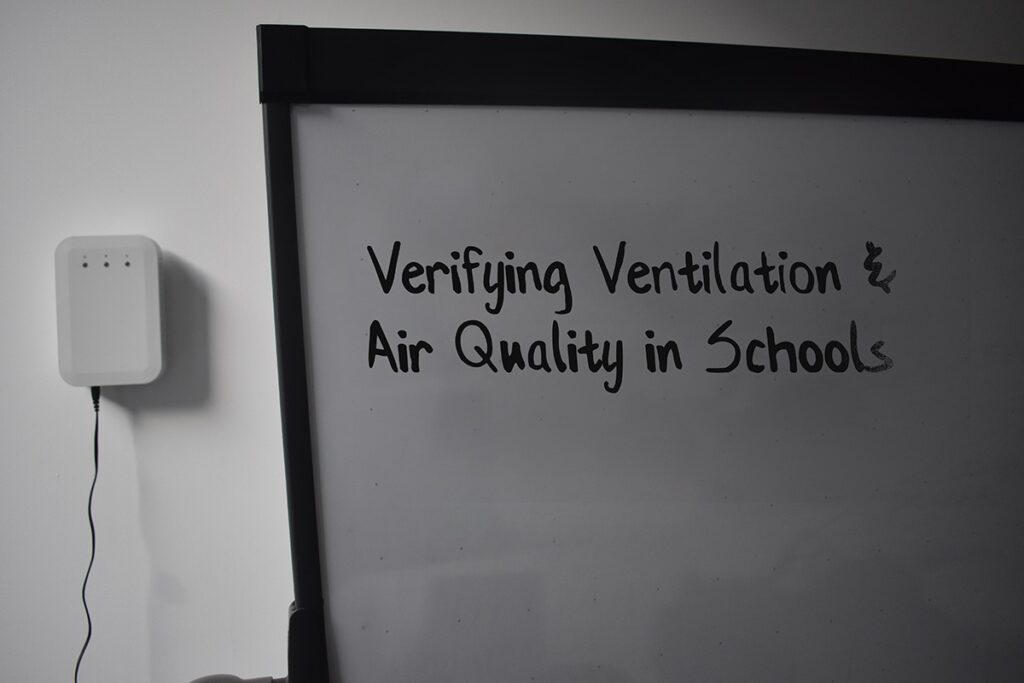A Scottish proptech company has deployed its air quality monitoring system across 30 primary schools as part of a UK Government pilot that aims to improve ventilation and reduce the spread of Covid-19 in classrooms.
Edinburgh-based arbnco was awarded a £288,000 contract to install its technologies across the schools in England.
The primaries, located in Bradford, West Yorkshire, are taking part in the £1.85 million trial to evaluate the effectiveness of two types of air purification devices.
Data gathered from arbnco’s monitors is being used to help evaluate the effectiveness of the two purification devices and how “clean” the air is inside classrooms during the pilot.
The monitoring sensors gather a range of data, including particulate matter, temperature, humidity, carbon dioxide, and total volatile organic compounds. They are currently live streaming data into a central platform every minute.
Research has found that Covid-19 mainly transmits via airborne particles, making enclosed spaces such as classrooms “ideal breeding grounds” for infection.
Simon West, chief operating officer and co-founder of arbnco, said: “We’re proud to be using our technology and expertise in what is one of most nationally significant projects in the fightback against Covid-19.
“Children are also particularly vulnerable to the effects of air pollution and this project has the potential to make our classrooms both safer and healthier. It’s not an overstatement to say that getting the air quality and ventilation right in our schools could be the key to improving the health and wellbeing of the nation as a whole.”
Classrooms in 10 schools have been fitted with high-efficiency particulate air (HEPA) filters, which trap particles such as dust, pollen and bacteria from the air.
Eight schools have had UV light technology fitted on the walls, which cycles the air through an enclosed unit, exposing it to a UV germicidal light and inactivating microorganisms.
Both devices then pump the sanitised air back into the room after the filtration process. The remaining 12 schools will act as the control group with no devices installed.
In addition to understanding how technology could help to reduce Covid-19 transmission and other cold and flu infections, the data gathered will provide insight on the quality of the air overall – which could have huge benefits for those with asthma and hay fever.
The pilot has been funded by the UK Health Security Agency, and is a collaboration between the Department for Education, the Department of Health & Social Care, Bradford Council and the Universities of Leeds, Bradford and York.
The initial research project will last for 15 months, but has the potential to be rolled out nationwide from 2022 if successful.
Schools Minister Nick Gibb MP said: “Ventilation has been a key part of the guidance we’ve provided to schools about how to keep schools safe and to minimise the risk of transmission.
“We’re looking at air purifiers – that’s what the pilot in Bradford is about – and we’re also looking at carbon dioxide monitors to see whether that’s an effective way of helping schools to monitor the quality of the air in the schools.”
The Bradford schools pilot commenced in September 2021 with initial results expected by early 2022.
